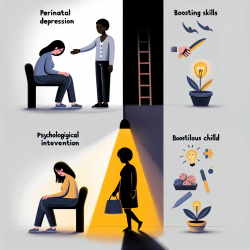Introduction
Burnout among healthcare providers (HCPs) has become a critical issue, especially during the COVID-19 pandemic. The systematic review titled "Burnout among Healthcare Providers of COVID-19; a Systematic Review of Epidemiology and Recommendations" provides valuable insights into the prevalence and prevention of burnout. This blog post will explore the findings of this review and suggest ways practitioners can improve their skills and outcomes by implementing the recommendations or pursuing further research.
Understanding Burnout
The World Health Organization (WHO) defines burnout as a syndrome resulting from chronic workplace stress that has not been successfully managed. It is characterized by three dimensions: feelings of energy depletion or exhaustion, increased mental distance from one's job, and reduced professional efficacy. Burnout can lead to frequent absences, decreased job performance, and even substance abuse, negatively impacting patient care and safety.
Key Findings from the Systematic Review
The review analyzed 12 studies focusing on the epidemiology of burnout among HCPs working in COVID-19 wards. Despite the lack of interventional studies, several risk factors and recommendations were identified:
- High workload and job-related stressors.
- Lack of adequate mental health support.
- Insufficient organizational support and resources.
- Gender differences, with women experiencing higher levels of emotional fatigue.
Recommendations for Reducing Burnout
While the studies did not establish causal relationships or test interventions, the authors provided recommendations based on their experiences:
- Improve mental health support through counseling and support systems.
- Adjust work shifts to reduce workload and stress.
- Create a supportive work environment that promotes autonomy and competence.
- Implement digital technologies to enhance communication and reduce administrative burdens.
Implementing Change in Practice
Practitioners can take several steps to address burnout and improve outcomes:
- Advocate for organizational changes that prioritize mental health and reduce workload.
- Engage in professional development opportunities focused on stress management and resilience.
- Utilize digital tools to streamline administrative tasks and improve communication.
- Participate in support groups or peer networks to share experiences and strategies.
Encouraging Further Research
The systematic review highlights the need for more high-quality, interventional studies to identify effective strategies for preventing and reducing burnout. Practitioners are encouraged to contribute to this research by participating in studies, sharing their experiences, and advocating for evidence-based interventions.
To read the original research paper, please follow this link: Burnout among Healthcare Providers of COVID-19; a Systematic Review of Epidemiology and Recommendations.










